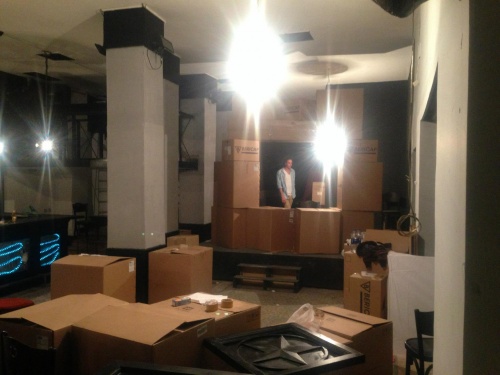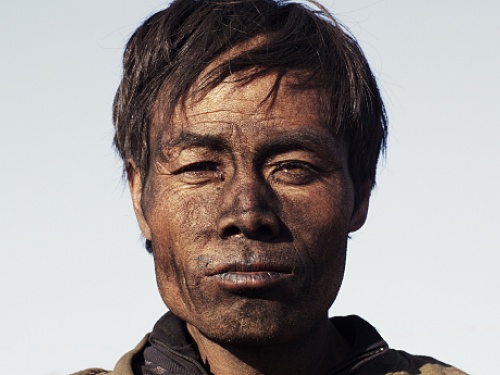The Voices of Indefinite Detention
A Q&A with Refugee Tales organiser David Herd
Refugee Tales is an outreach project of the Gatwick Detainees Welfare Group, telling the tales of refugees and detainees through a series of cross-country walks and anthologies. In July the ICA held a closing event for their walk from Canterbury to Westminster, featuring a presentation of the Refugee Tales collection. Editor, poet and professor David Herd talks to Maya Caspari about the project and its future.
How did the idea for Refugee Tales emerge initially and how has it developed? Was there a story, individual or event that particularly inspired it?
The UK is the only country in Europe that detains people indefinitely. Refugee Tales grew out of a shared understanding that people who are held in indefinite immigration detention or live with the terrible precarity of post-detention existence are officially silenced. Such detention is extremely damaging for the individuals who experience it, compounding the trauma they have experienced elsewhere. Those involved in the organization of Refugee Tales have spent years working with people who have been indefinitely detained and in so doing gained a very strong sense that the stories behind this policy had to be heard.
Chaucer’s Canterbury Tales narrates various journeys, playfully drawing on multiple cultural and linguistic influences. In what ways was Chaucer’s poem an inspiration for the project? How do you see the connection to Refugee Tales?
The Canterbury Tales is a wonderfully rich source text for the project. For a start, it combines the act of journeying and storytelling in a way that enables one to think about the relationship between language and space. Refugee Tales is as much about walking as it is about story-telling, the intention being to start to reclaim the spaces we walk through for a language of welcome. When the recent Immigration Act was first conceived the then Home Secretary told the press that what she sought to achieve by it was ‘a really hostile environment’; what Refugee Tales seeks to help generate by contrast is a really welcoming environment. Chaucer’s great poem of movement and story-telling allows one to see that stories, and especially stories from elsewhere, constitute the fabric of our cultural space. Furthermore, his Middle English is a language in transition, one in which influences from other languages are in the process of making new ways of thinking and acting possible; it is a model for how the language can change.
People who are held in indefinite immigration detention or live with the terrible precarity of post-detention existence are officially silenced.
The collection’s opening poem situates it as a political intervention, challenging dominant discourses around refugees and migration. You write: “To make his English sweete. / That’s why Chaucer told his tales. / How badly we need English / To be made sweet again.” How do you see the relationship between use of language and political culture?
It is clear that there is a very intimate connection between language and the politics of human movement, and the question of indefinite detention goes to the heart of the matter. As Judith Butler discussed in Precarious Life, like Hannah Arendt before her, it is only possible to practice a policy such as indefinite detention if you have first represented people in such a way as to countenance their exclusion from the ordinary expectations of society. Once people have been excluded it becomes possible for the political culture to disregard their concerns. Confronting the language that surrounds the practice of indefinite detention is critical to any change.
Refugee Tales voices stories that are often neglected by the mainstream media and crucially raises awareness of the UK’s policy of indefinite detention. What was behind the idea to use writers to create these tales, creating a form which blends refugees’ accounts with fiction? Is there any tension between the process of writing creatively and the need to stay true to the political aims of the project?
The aim of the project has been to try to create a context in which the stories of people who have been indefinitely detained as part of the UK asylum system can be heard. That context takes two forms in particular: the telling of stories at performances along the routes of the walks, and the subsequent publication of the stories in the collections of tales. Great care has to be taken around both forms of transmission. The people whose stories are being told are at risk of re-detention, by virtue of the fact that their cases are not resolved: a person who has been indefinitely detained and is then ‘released into the community’ (as occurs in fifty percent of cases) subsequently has to report to the Home Office on a weekly, fortnightly or monthly basis. At any such report they could be re-detained and so anonymity when presenting the stories is a significant consideration. So too is the fact that the telling of the tales can itself be traumatic, given the experiences that people who find themselves detained in the UK have undergone.
One way for the tales to be told, then, is to involve a third party, the writer, who collaborates on the presentation of that tale. What results is dependent on each individual collaboration, but in practice the great majority of writers have chosen to remain extremely close to the words of the person themselves. This is why in the book the tales are described as being ‘told to’ the writers. Quite how that plays out in the telling is complicated and in part comes down to the handling of pronouns. In some cases the second person prevails, as a way of registering the act of passing the tale on, and in others the writers use the first person more, as a way of acknowledging that they are part of the telling. This is all part of the considerations that come with sharing stories, where each phase is crucial: the telling, the listening and the passing on. At its core however, the project aims to help create a context in which people can tell their own tales. This aim was crucial to the Forum that opened the 2016 walk and is central to the planning for the 2017 walk.
Stories, and especially stories from elsewhere, constitute the fabric of our cultural space.
What is the project working on next?
Next year’s walk! Having walked to Westminster from the east earlier this year (through Gravesend and Dartford and along the Thames) the plan for Refugee Tales 2017 is to walk from Runnymede in the west. The dates for the walk will be June 30 to July 5. There will be new tales and a renewed call to end indefinite detention. ■
The Refugee Tales collection is available to purchase.
This article is posted in: Events, Interviews
Tagged with: Refugee Tales, Storytelling, Immigration, interview






/index.jpg?itok=8ygHLi6e)


